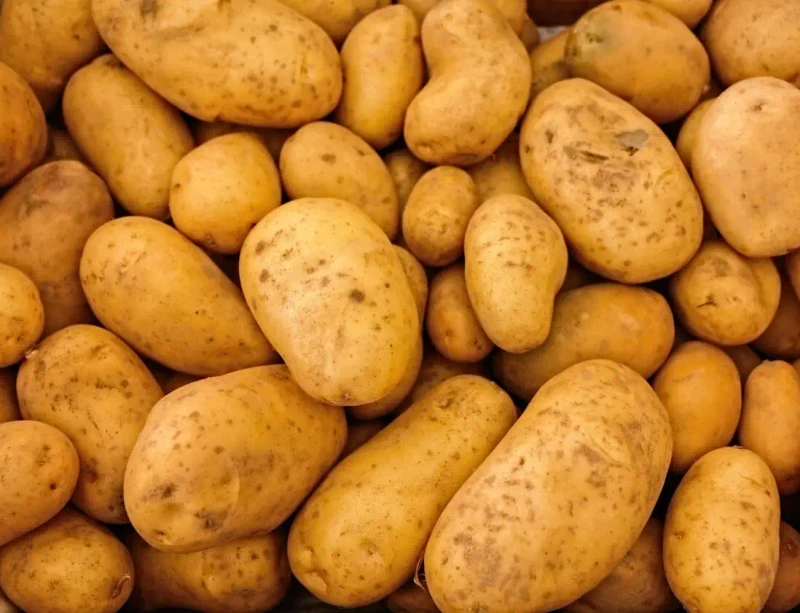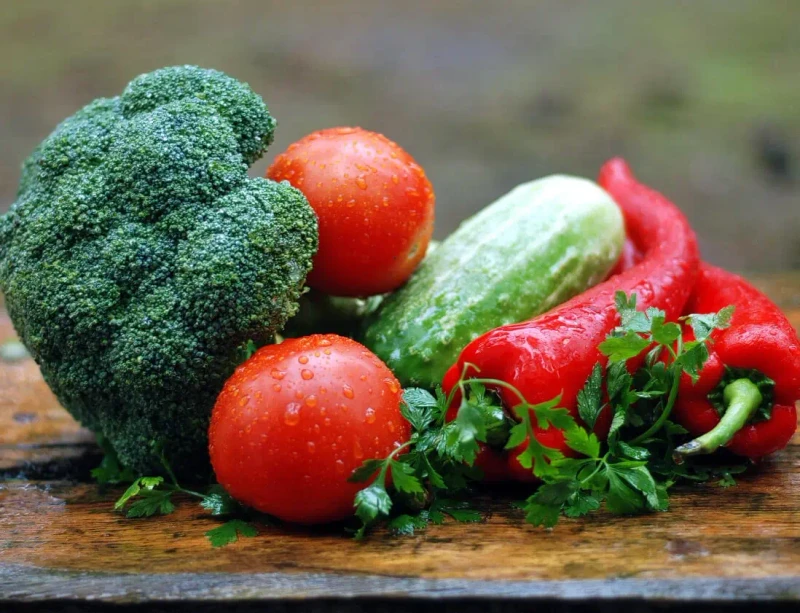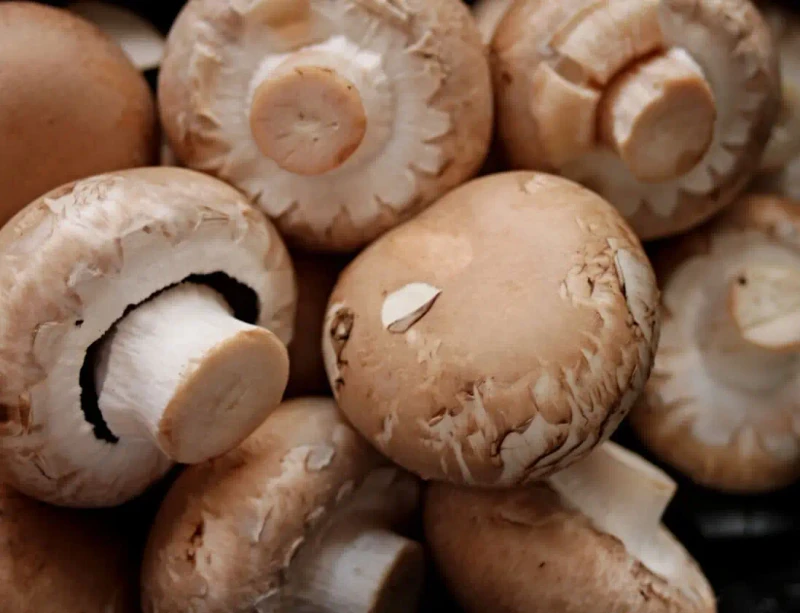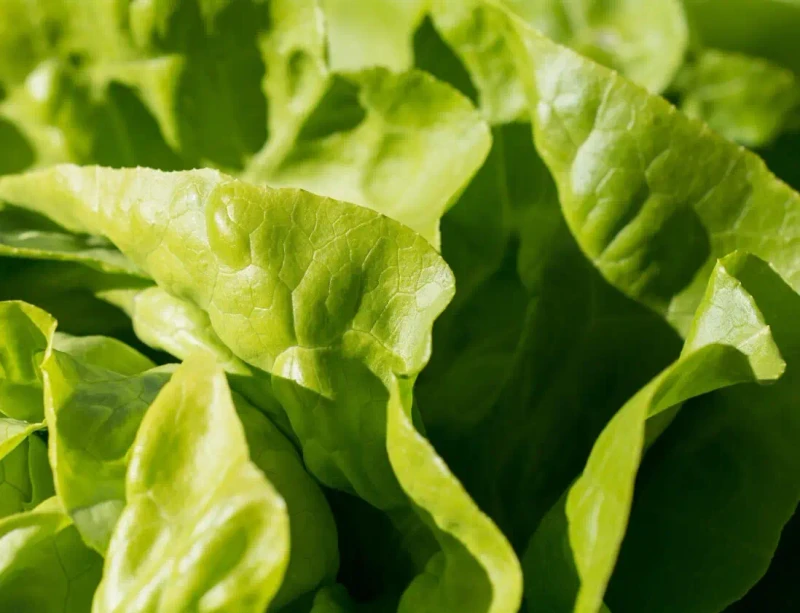Fruit: Calories
| Food | Serving | Calories | Serving | Calories |
|---|---|---|---|---|
Acai Berry | 100 g | 59 Cal | 100 g | 59 Cal |
Ackee | 100 g | 224 Cal | 100 g | 336 Cal |
Apple | 100 g | 64 Cal | 100 g | 96 Cal |
Apricot | 100 g | 45 Cal | 100 g | 22 Cal |
Apricot, dried | 100 g | 269 Cal | 100 g | 32 Cal |
Asian Pear | 100 g | 42 Cal | 100 g | 116 Cal |
Avocado, Hass Avocado | 100 g | 161 Cal | 100 g | 354 Cal |
Banana | 100 g | 92 Cal | 100 g | 111 Cal |
Banana, small | 100 g | 89 Cal | 100 g | 89 Cal |
Bartlett Pear, Williams Pear | 100 g | 55 Cal | 100 g | 83 Cal |
Blackberries | 100 g | 43 Cal | 100 g | 53 Cal |
Blood Orange | 100 g | 43 Cal | 100 g | 61 Cal |
Blueberries | 100 g | 46 Cal | 100 g | 14 Cal |
Breadfruit | 100 g | 103 Cal | 100 g | 396 Cal |
Cactus Pear | 100 g | 46 Cal | 100 g | 23 Cal |
Cantaloupe | 100 g | 56 Cal | 100 g | 45 Cal |
Carob | 100 g | 188 Cal | 100 g | 94 Cal |
Chayote | 100 g | 19 Cal | 100 g | 39 Cal |
Cherries | 100 g | 64 Cal | 100 g | 5 Cal |
Clementine | 100 g | 49 Cal | 100 g | 37 Cal |
Coconut | 100 g | 384 Cal | 100 g | 1536 Cal |
Concord Grape | 100 g | 86 Cal | 100 g | 22 Cal |
Cranberries | 100 g | 76 Cal | 100 g | 38 Cal |
Cranberries, dried | 100 g | 315 Cal | 100 g | 94 Cal |
Currant | 100 g | 40 Cal | 100 g | 50 Cal |
Dates | 100 g | 294 Cal | 100 g | 70 Cal |
Dates, Medjool Dates | 100 g | 277 Cal | 100 g | 66 Cal |
Dragon Fruit | 100 g | 60 Cal | 100 g | 119 Cal |
Dried Fruit Mix | 100 g | 258 Cal | 100 g | 64 Cal |
Durian | 100 g | 151 Cal | 100 g | 911 Cal |
Elderberries | 100 g | 348 Cal | 100 g | 348 Cal |
Fig | 100 g | 66 Cal | 100 g | 30 Cal |
Fig, dried | 100 g | 270 Cal | 100 g | 135 Cal |
Fruit Salad, Mixed Fruit | 100 g | 63 Cal | 100 g | 158 Cal |
Goji Berry | 100 g | 325 Cal | 100 g | 20 Cal |
Gooseberries | 100 g | 43 Cal | 100 g | 2 Cal |
Grapefruit | 100 g | 47 Cal | 100 g | 92 Cal |
Grapes | 100 g | 72 Cal | 100 g | 4 Cal |
Guava | 100 g | 44 Cal | 100 g | 7 Cal |
Huckleberry | 100 g | 429 Cal | 100 g | 429 Cal |
Jackfruit | 100 g | 80 Cal | 100 g | 318 Cal |
Jujube | 100 g | 115 Cal | 100 g | 143 Cal |
Kiwi | 100 g | 61 Cal | 100 g | 46 Cal |
Kumquat | 100 g | 75 Cal | 100 g | 14 Cal |
Lemon | 100 g | 38 Cal | 100 g | 25 Cal |
Lime | 100 g | 48 Cal | 100 g | 32 Cal |
Longan | 100 g | 74 Cal | 100 g | 46 Cal |
Lychee | 100 g | 78 Cal | 100 g | 8 Cal |
Mandarin Orange | 100 g | 53 Cal | 100 g | 42 Cal |
Mango | 100 g | 61 Cal | 100 g | 215 Cal |
Mangosteen | 100 g | 76 Cal | 100 g | 61 Cal |
Maraschino Cherries | 100 g | 35 Cal | 100 g | 2 Cal |
Melon, Galia Melon | 100 g | 56 Cal | 100 g | 75 Cal |
Melon, Honeydew Melon | 100 g | 56 Cal | 100 g | 84 Cal |
Melon, Musk melon | 100 g | 56 Cal | 100 g | 84 Cal |
Melon, Water Melon | 100 g | 38 Cal | 100 g | 57 Cal |
Melon, Winter Melon | 100 g | 30 Cal | 100 g | 30 Cal |
Melon, Yellow Melon | 100 g | 30 Cal | 100 g | 44 Cal |
Mixed Berries, frozen | 100 g | 67 Cal | 100 g | 84 Cal |
Mulberries | 100 g | 47 Cal | 100 g | 58 Cal |
Nectarine | 100 g | 59 Cal | 100 g | 59 Cal |
Nopal | 100 g | 321 Cal | 100 g | 385 Cal |
Olive, black | 100 g | 320 Cal | 100 g | 16 Cal |
Olive, green | 100 g | 141 Cal | 100 g | 4 Cal |
Orange | 100 g | 47 Cal | 100 g | 75 Cal |
Papaya | 100 g | 35 Cal | 100 g | 44 Cal |
Passion Fruit | 100 g | 66 Cal | 100 g | 59 Cal |
Pawpaw | 100 g | 80 Cal | 100 g | 68 Cal |
Peach | 100 g | 44 Cal | 100 g | 59 Cal |
Pear | 100 g | 57 Cal | 100 g | 103 Cal |
Persimmon, Khaki | 100 g | 75 Cal | 100 g | 56 Cal |
Pineapple | 100 g | 58 Cal | 100 g | 32 Cal |
Pink Grapefruit | 100 g | 47 Cal | 100 g | 92 Cal |
Plantain | 100 g | 125 Cal | 100 g | 125 Cal |
Plantain, fried | 100 g | 309 Cal | 100 g | 309 Cal |
Plum | 100 g | 48 Cal | 100 g | 17 Cal |
Poha | 100 g | 379 Cal | 100 g | 114 Cal |
Pomegranate | 100 g | 79 Cal | 100 g | 222 Cal |
Pomelo | 100 g | 47 Cal | 100 g | 285 Cal |
Prickly Pear | 100 g | 31 Cal | 100 g | 32 Cal |
Prunes | 100 g | 48 Cal | 100 g | 5 Cal |
Prunes, dried | 100 g | 250 Cal | 100 g | 62 Cal |
Quince | 100 g | 50 Cal | 100 g | 46 Cal |
Raisin | 100 g | 310 Cal | 100 g | 62 Cal |
Rambutan | 100 g | 69 Cal | 100 g | 14 Cal |
Raspberries | 100 g | 43 Cal | 100 g | 54 Cal |
Rhubarb | 100 g | 20 Cal | 100 g | 16 Cal |
Rose Hips | 100 g | 162 Cal | 100 g | 162 Cal |
Satsuma | 100 g | 47 Cal | 100 g | 33 Cal |
Sour Cherries | 100 g | 54 Cal | 100 g | 3 Cal |
Soursop | 100 g | 33 Cal | 100 g | 132 Cal |
Star Fruit | 100 g | 30 Cal | 100 g | 26 Cal |
Strawberries | 100 g | 36 Cal | 100 g | 4 Cal |
Tamarind | 100 g | 290 Cal | 100 g | 145 Cal |
Tangelo | 100 g | 53 Cal | 100 g | 58 Cal |
Tomatillo | 100 g | 32 Cal | 100 g | 11 Cal |
Fruit Varieties and Healthy, Creative Ideas
One of the earliest harvested foods known to human civilization, fruit is a great addition to a healthy, balanced diet. You can find fruit in all colors, flavors and textures, and there are plenty of ways to get creative with it when it comes to cooking. Fruit can be classified into several categories, including drupes (pitted fruits, such as peaches), berries, pomes (such as apples) and melons, and vary based on region. Tropical fruits, for example, are typically found in warm climates. Regardless of type, fruits are generally packed with fiber and are high in essential vitamins and minerals.
When it comes to canned fruit, pay attention to the food label. These items often contain added sugars. If you want to keep this to a minimum and reduce the amount of calories you ingest through fruit, keep an eye out for words such as “Unsweetened,” “Natural juices,” “Canned fruit in water,” or “No Sugar Added.” Finally, dried fruit can also be a great snack to enjoy between meals. In this case, make sure to eat small portions as these little snacks can add up in sugar and calories as well. For some creative ways to add more fruit to your diet, opt for a blended juice or smoothie. This makes for a nutritious, convenient breakfast. You can also find trail mixes with added fruit or you can even top your yogurt or dessert with it for a kick of fresh, fruity flavor.






